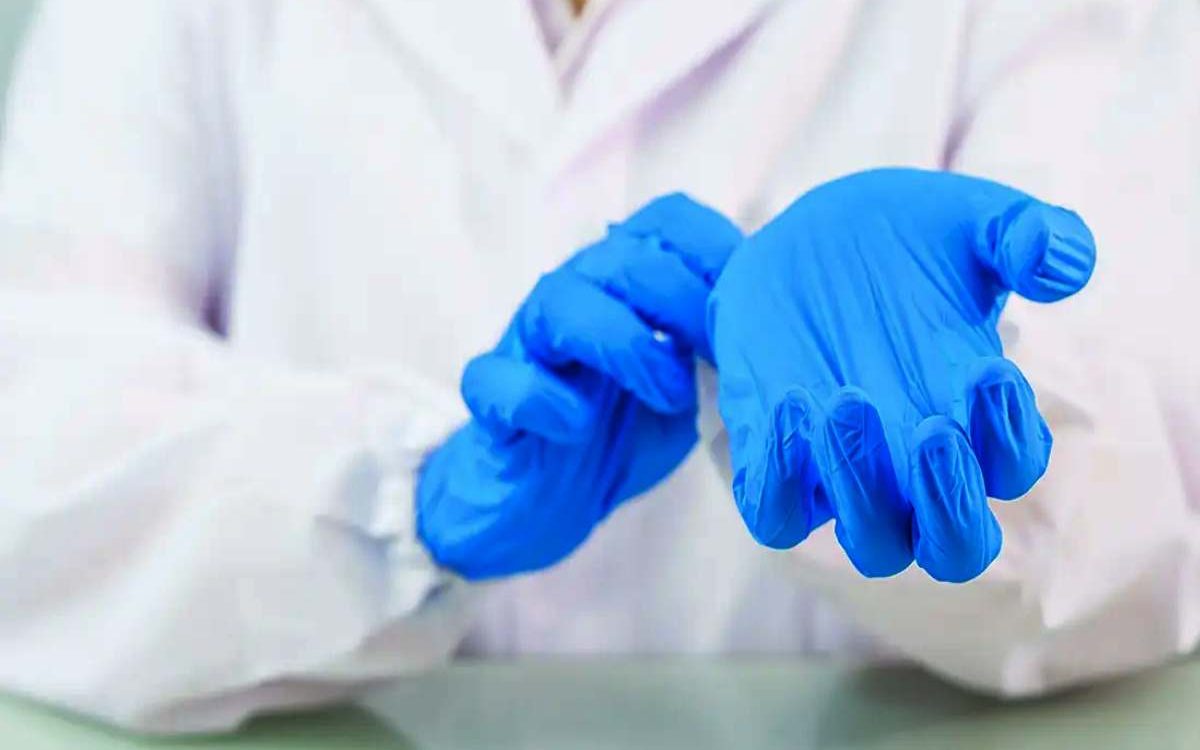A recent study by researchers of JIPMER in Puducherry, found that wearing latex gloves is causing allergic reactions.

A total of 1,088 healthcare workers including doctors, nurses and auxiliary staff from various states of South India participated in the study. (Representative Image/ Creative commons)
When you visit a hospital you usually see doctors and nurses wearing gloves while observing or treating a patient to prevent the transmission of germs. However, these latex-made gloves are causing a good degree of harm to these healthcare workers.
A recent study by researchers from the Jawaharlal Institute of Postgraduate Medical Education and Research (JIPMER) in Puducherry found that latex gloves were causing allergic reactions in a good number of medical professionals.
According to the study, 9.1 percent of healthcare workers are suffering from latex allergy in South India.
The study was conducted by Dr Laxmisha Chandrashekar, Dr Vinupriya Sakkaravarthi, and Dr Medha Rajappa of the Department of Dermatology at JIPMER.
A total of 1,088 healthcare workers — including doctors, nurses, and auxiliary staff — from various states of South India participated in the study.
Of these 637 were doctors (58.5 percent), 308 were nurses (28.4 percent), and 143 were auxiliary staff (13.1percent).
Out of the 1,088 participants, 99 (9.1 percent, or just about one in 11) were found to have allergies related to latex gloves.
According to the study, the auxiliary staff are at high risk of latex-glove allergy.
Researchers found out that 24.6 percent of auxiliary staff — nearly one out of every four — had symptoms related to latex-glove allergy.
According to the study, the most common manifestation of latex-glove allergy was irritant contact dermatitis, as observed in 68 healthcare workers (68.6 percent, or more then two out of three).
Other presentations were allergic rhinitis (40.4 percent, or more than two out of five people), allergic contact dermatitis (17.1 percent or more than one out of six), contact urticaria (11.1 percent, or one out of nine), allergic conjunctivitis (6.06 percent, or almost one out of 16), and asthma (3.03 percent, or one out of 33).
According to the authors of the study, healthcare professionals who have a history of atopy — a genetic tendency to develop allergic diseases — and work in an operation-theatre setup, auxiliary staff, and those with more than 10 years of experience are at a higher risk of developing latex allergy.
“I am a technician. I have to collect samples for Covid-19 at the hospital. Every day I wear gloves for at least five-six hours. Due to this, I have an itching problem,” said N Karuna, an auxiliary staff at the District Hospital Kondapur in Hyderabad.
The authors also said they would be educating healthcare workers on how to use latex gloves, as well as precautionary measures like applying moisturiser to prevent allergic problems.

Jul 26, 2024

Jul 26, 2024

Jul 26, 2024

Jul 26, 2024

Jul 26, 2024

Jul 26, 2024